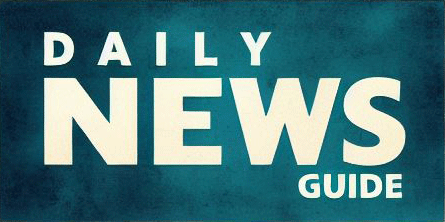
Jerome Powell and President Donald Trump during a nomination announcement in the Rose Garden of the White House in Washington, D.C., U.S., on Thursday, Nov. 2, 2017.
Andrew Harrer | Bloomberg | Getty Images
President-elect Donald Trump and Federal Reserve Chair Jerome Powell could be on a policy collision course in 2025 depending on how economic circumstances play out.
Should the economy run hot and inflation flare up again, Powell and his colleagues could decide to tap the brakes on their efforts to lower interest rates. That in turn could infuriate Trump, who lashed Fed officials including Powell during his first term in office for not relaxing monetary policy quickly enough.
“Without question,” said Joseph LaVorgna, former chief economist at the National Economic Council during Trump’s first term, when asked about the potential for a conflict. “When they don’t know what to do, oftentimes they don’t do anything. That may be a problem. If the president feels like rates should be lowered, does the Fed, just for public optics, dig its feet in?”
Though Powell became Fed chair in 2018, after Trump nominated him for the position, the two clashed often about the direction of interest rates.
Trump publicly and aggressively berated the chair, who in turn responded by asserting how important it is for the Fed to be independent and apart from political pressures, even if they’re coming from the president.
When Trump takes office in January, the two will be operating against a different backdrop. During the first term, there was little inflation, meaning that even Fed rate hikes kept benchmark rates well below where they are now.
Trump is planning both expansionary and protectionist fiscal policy, even more so than during his previous run, that will include an even tougher round of tariffs, lower taxes and big spending. Should the results start to show up in the data, the Powell Fed may be tempted to hold tougher on monetary policy against inflation.
LaVorgna, chief economist at SMBC Nikko Securities, who is rumored for a position in the new administration, thinks that would be mistake.
“They’re going to look at a very nontraditional approach to policy that Trump is bringing forward but put it through a very traditional economic lens,” he said. “The Fed’s going to have a really difficult choice based on their traditional approach of what to do.”
Market sees fewer rate cuts
Futures traders have been waffling in recent days on their expectations for what the Fed will do next.
The market is pricing in about a coin-flip chance of another interest rate cut in December, after it being a near certainty a week ago, according to the CME Group’s FedWatch gauge. Pricing further out indicates the equivalent of three quarter percentage point reductions through the end of 2025, which also has come down significantly from prior expectations.
Investors’ nerves have gotten jangled in recent days about the Fed’s intentions. Fed Governor Michelle Bowman on Wednesday noted that progress on inflation has “stalled,” an indication that she might continue to push for a slower pace of rate cuts.
“All roads lead to tensions between the White House and the Fed,” said Joseph Brusuelas, chief economist at RSM. “It won’t just be the White House. It will be Treasury, it’ll be Commerce and the Fed all intersecting.”
Indeed, Trump is building a team of loyalists to implement his economic agenda, but much of the success depends on accommodative or at least accurate monetary policy that doesn’t push too hard to either boost or restrict growth. For the Fed, that is represented in the quest to find the “neutral” rate of interest, but for the new administration, it could mean something different.
The struggle over where rates should be will create “political and policy tensions between the Federal Reserve and the White House that would clearly prefer lower rates,” Brusuelas said.
“If one is going to impose tariffs, or mass deportations, you’re talking about restricting aggregate supply while simultaneously implementing deficit finance tax cuts, which is encouraging an increase in aggregate demand. You’ve got a basic inconsistency in your policy matrix,” he added. “There’s an inevitable crossroads that results in tensions between Trump and Powell.”
Avoiding conflict
To be sure, there are some factors that could mitigate the tensions.
One is that Powell’s term as Fed chair expires in early 2026, so Trump may simply choose to ride it out until he can put someone in the chair more to his liking. There’s also little chance that the Fed would actually move to raise rates outside of some highly unexpected event that would push inflation much higher.
Also, Trump’s policies will take a while to make their way through the system, so any impacts on inflation and macroeconomic growth likely won’t be readily apparent in the data, thus not necessitating a Fed response. There’s also the chance that the impacts might not be that much either way.
“I expect higher inflation and slower growth. I think the tariffs and the deportations are negative supply shocks. They hurt growth and they lift inflation,” said Mark Zandi, chief economist at Moody’s Analytics. “The Fed will still cut interest rates next year, just perhaps not as quickly as would have otherwise been the case.”
Battles with Trump, then, could be more of a headache for the next Fed chair, assuming Trump doesn’t reappoint Powell.
“So I don’t think it’s going to be an issue in 2025,” Zandi said. “It could be an issue in 2026, because at that point, the rate cutting’s over and the Fed may be in a position where it certainly needs to start raising interest rates. Then that’s when it becomes an issue.”

